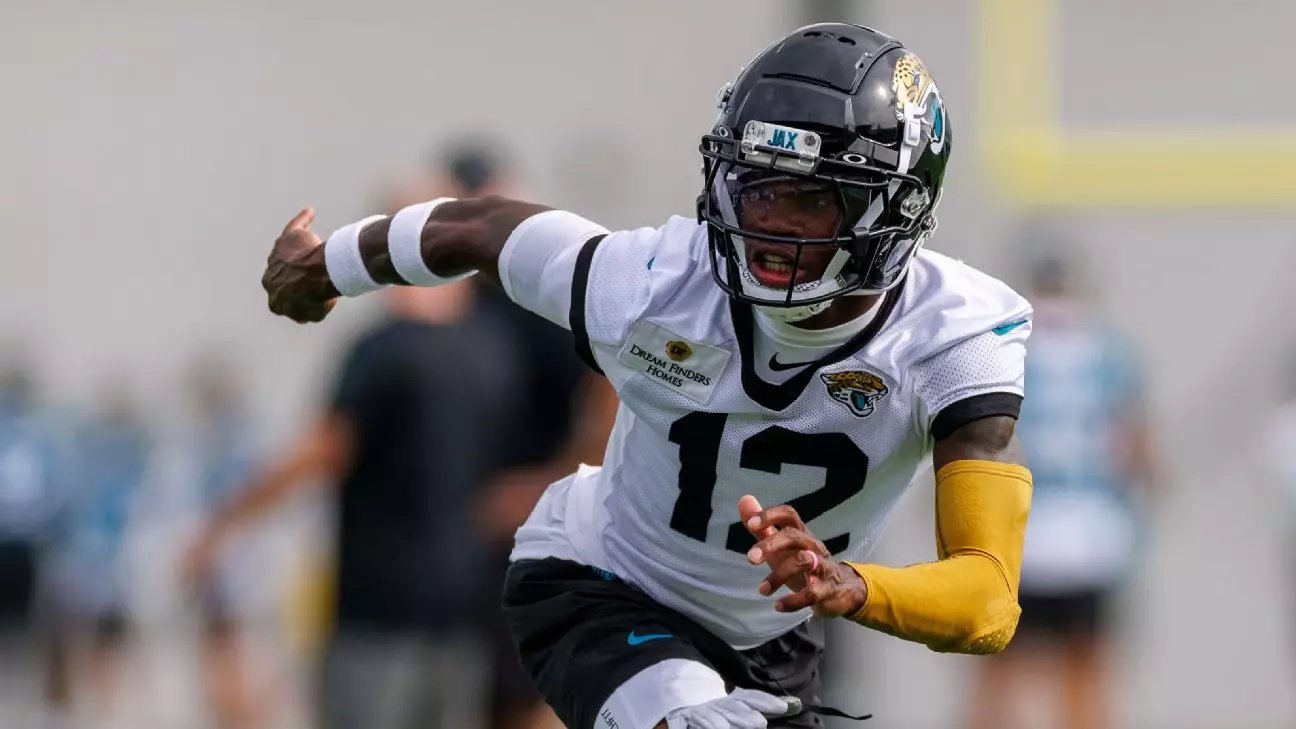In today’s NFL, the idea of a player excelling on both offense and defense simultaneously is less a testament to exceptional versatility and more a reflection of misguided expectations. Travis Hunter’s recent training camp experience epitomizes the NFL’s flirtation with the impossible—balancing the demands of two distinct disciplines and expecting mastery across both within a short period. While it might seem innovative to some, this approach exacerbates the myth that modern athletes can, or should, be stretched beyond their natural limits. Reality check: the professional league demands specialized excellence, not jack-of-all-trades mediocrity dressed up as a revolutionary strategy.
Hunter’s coaches trumpet his handling of the workload as impressive, but beneath that praise lies a flawed understanding of athletic development. The NFL isn’t a playground where players learn by quick adaptation; it is a league rooted in deep expertise, refined over years of dedicated practice. Forcing a talented rookie to split focus aligns poorly with the fundamental principles of skill acquisition and mental toughness in high-stakes sports. It risks undermining not only Hunter’s career trajectory but also dilutes the competitive integrity of the game itself.
The Superficial Promises of Flexibility
The coaching staff’s plan to gradually introduce Hunter to work on both sides of the ball seems responsible on paper, but it also exposes a troubling trend of superficial adaptability. The narrative that a player will seamlessly transition from offense to defense dismisses the intense specialization that the NFL has devolved into. It’s akin to expecting a musician to be equally proficient in three different instruments overnight—fundamentally unrealistic and potentially damaging.
Moreover, the focus on mental skills and quick processing shouldn’t be admired as a sheer testament to Hunter’s robustness; rather, it reflects an underlying pressure that the league and its teams impose on young athletes to perform beyond their capacity. The NFL’s obsession with “multifaceted” players fuels an unhealthy myth—not only for players but for fans and aspiring athletes—about what it takes to succeed. No one realistically believes a receiver can master the intricacies of defensive responsibilities in a few weeks, and pretending otherwise only hampers genuine skill development.
Obsession with Flexibility Over Specialization
The obsession with flexibility and “multi-threat” players perpetuates the harmful notion that the future of football relies on jeopardizing the mental and physical health of its athletes for fleeting novelty. Hunter’s case, praised for handling a grueling workload, should serve as a cautionary tale rather than an inspiration. True greatness in the NFL isn’t built on juggling multiple roles with minimal preparation; it’s born through meticulous focus, relentless practice, and specialization.
The league’s push to transform its game into a theatre of superhuman adaptability risks diluting the sport’s essence. Talent, at its core, is about mastery—about knowing your craft so deeply that the game almost becomes instinct. When players are asked to be two-way ghosts, they lose ground in both areas, becoming competent but not truly excellent. That is a dangerous path that undercuts the integrity and long-term health of professional football.
What the NFL Gets Wrong and How It Can Right It
The NFL’s relentless pursuit of novelty at the expense of tradition is a flawed narrative that champions superficial versatility over real talent. Hunter should not be seen as a pioneer; he is a casualty of a league that claims to innovate while ignoring the fundamental demands of professional sport. To genuinely strengthen the league, stakeholders must recognize that specialization isn’t a betrayal of progress—it’s the backbone of excellence.
Rather than forcing players into roles they aren’t yet equipped to handle, teams should prioritize developing deep expertise within specific positions. This creates athletes who are resilient, highly skilled, and prepared for the relentless mental and physical demands of football. It’s time to abandon the illusion that one athlete can sustain a high level on both sides of the ball without major sacrifices. The NFL should embrace the discipline that makes its sport great, rather than chasing fleeting ideals of enhanced versatility that do more harm than good.

